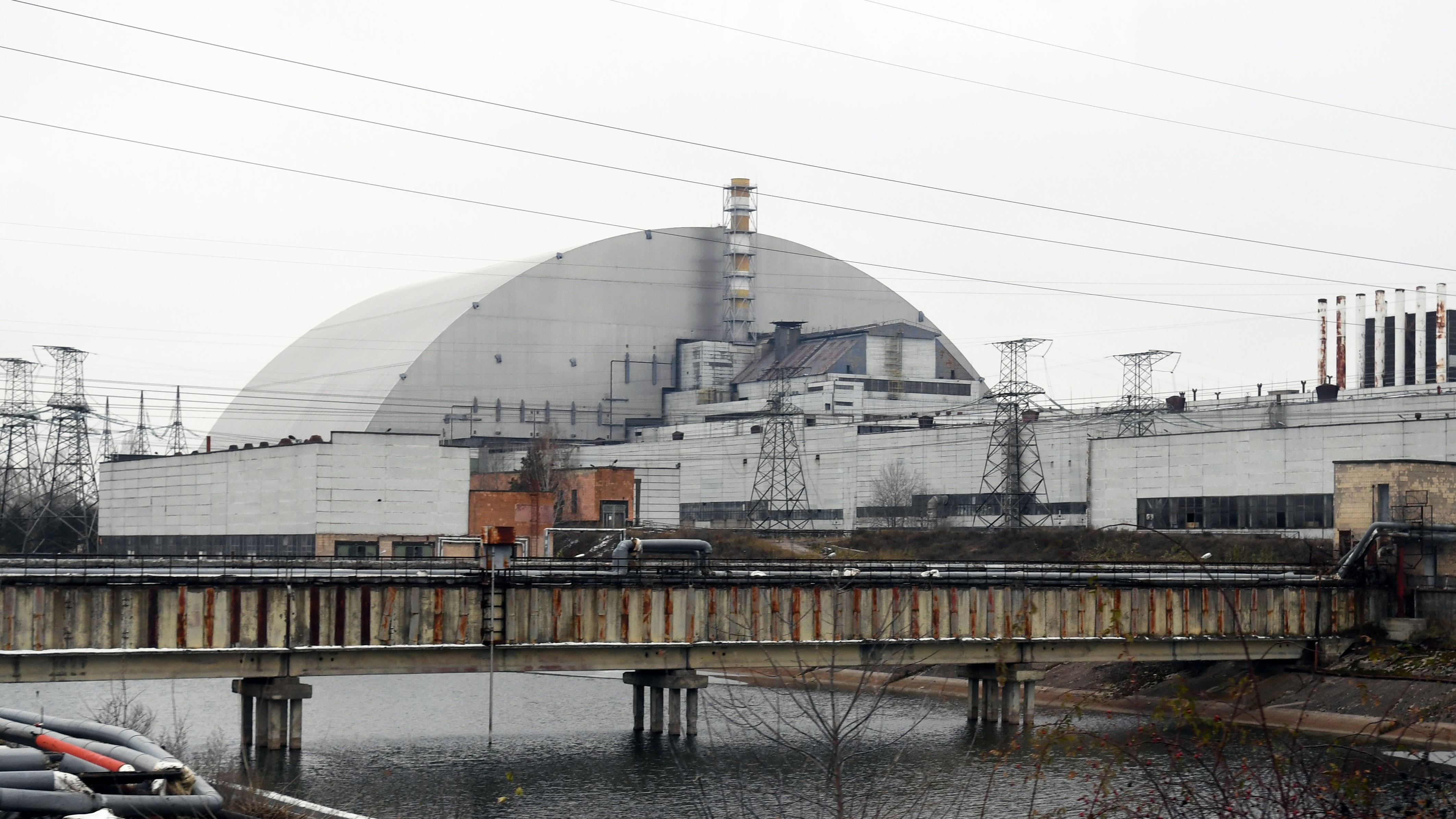Russia denies radiation increase is linked to its nuclear plants
Authorities insists no leakages or faults detected following rise in radioactivity levels across northern Europe

A free daily email with the biggest news stories of the day – and the best features from TheWeek.com
You are now subscribed
Your newsletter sign-up was successful
Russia has denied claims that an increase in radiation over northern Europe is the result of a leak at one of its power stations.
Nuclear watchdogs in Finland, Norway and Sweden last week reported “higher-than-usual” quantities of radioactive isotopes in the atmosphere across Scandinavia and in some Arctic regions, the BBC says.
Dutch researchers who analysed data from their Nordic neighbours said that the radiation appeared to originate “from the direction of western Russia” and could indicate “damage to a fuel element”.
The Week
Escape your echo chamber. Get the facts behind the news, plus analysis from multiple perspectives.

Sign up for The Week's Free Newsletters
From our morning news briefing to a weekly Good News Newsletter, get the best of The Week delivered directly to your inbox.
From our morning news briefing to a weekly Good News Newsletter, get the best of The Week delivered directly to your inbox.
But Russian nuclear power operator Rosenergoatom insists there are no problems at its two power plants in the country’s northwest.
Russian news agency Tass quoted a Rosenergoatom spokesperson who said that both plants - one near St Petersburg, and the other near the port city of Murmansk - were “working in normal regime”.
Radiation levels around the two power stations “have remained unchanged in June”, the spokesperson added.
The denial came after Lassina Zerbo, executive secretary of the Comprehensive Nuclear-Test-Ban Treaty Organization (CTBTO), tweeted on Friday that its Stockholm monitoring station had detected three isotopes - Cs-134, Cs-137 and Ru-103 - at higher than usual levels.
A free daily email with the biggest news stories of the day – and the best features from TheWeek.com
“These isotopes are most likely from a civil source,” he added.
The Independent reports that “the low levels and particular isotopes detected in Scandinavia are not harmful either to humans or the environment”.
All the same, Deutsche Welle (DW) notes that painful “memories remain of the 1986 Chernobyl disaster”.
The explosion of the fourth reactor at a Soviet plant north of Ukraine’s capital Kyiv “polluted swathes of Europe and prompted control attempts by thousands of Soviet emergency personnel”, many of whom suffered fatal long-term illness as a result of radiation explosure, says the German newspaper.
–––––––––––––––––––––––––––––––For a round-up of the most important stories from around the world - and a concise, refreshing and balanced take on the week’s news agenda - try The Week magazine. Start your trial subscription today –––––––––––––––––––––––––––––––
-
 How the FCC’s ‘equal time’ rule works
How the FCC’s ‘equal time’ rule worksIn the Spotlight The law is at the heart of the Colbert-CBS conflict
-
 What is the endgame in the DHS shutdown?
What is the endgame in the DHS shutdown?Today’s Big Question Democrats want to rein in ICE’s immigration crackdown
-
 ‘Poor time management isn’t just an inconvenience’
‘Poor time management isn’t just an inconvenience’Instant Opinion Opinion, comment and editorials of the day
-
 US, Russia restart military dialogue as treaty ends
US, Russia restart military dialogue as treaty endsSpeed Read New START was the last remaining nuclear arms treaty between the countries
-
 Epstein files topple law CEO, roil UK government
Epstein files topple law CEO, roil UK governmentSpeed Read Peter Mandelson, Britain’s former ambassador to the US, is caught up in the scandal
-
 Iran and US prepare to meet after skirmishes
Iran and US prepare to meet after skirmishesSpeed Read The incident comes amid heightened tensions in the Middle East
-
 Israel retrieves final hostage’s body from Gaza
Israel retrieves final hostage’s body from GazaSpeed Read The 24-year-old police officer was killed during the initial Hamas attack
-
 China’s Xi targets top general in growing purge
China’s Xi targets top general in growing purgeSpeed Read Zhang Youxia is being investigated over ‘grave violations’ of the law
-
 Panama and Canada are negotiating over a crucial copper mine
Panama and Canada are negotiating over a crucial copper mineIn the Spotlight Panama is set to make a final decision on the mine this summer
-
 Why Greenland’s natural resources are nearly impossible to mine
Why Greenland’s natural resources are nearly impossible to mineThe Explainer The country’s natural landscape makes the task extremely difficult
-
 Iran cuts internet as protests escalate
Iran cuts internet as protests escalateSpeed Reada Government buildings across the country have been set on fire